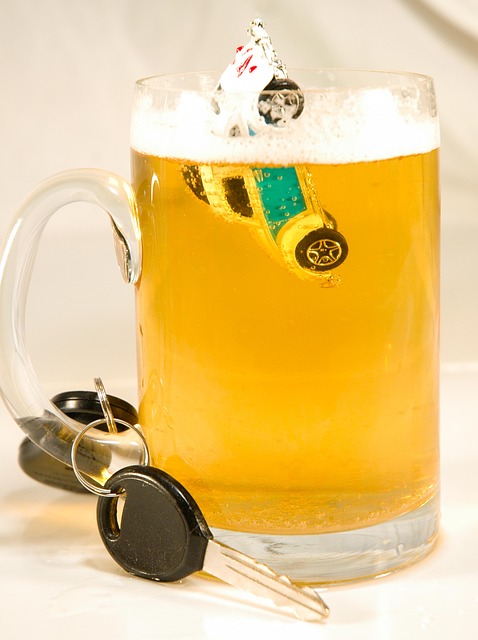Drug interactions and DUI laws are interconnected, impacting alternative sentencing for driving under the influence (DUI). Understanding medication-alcohol interactions is crucial for court decisions and rehabilitation. Emerging alternative sentences, like diversion programs, community service, and addiction treatment, focus on reducing recidivism and ensuring public safety. Non-custodial sentences, including electronic monitoring and specialized rehab centers, gain popularity due to a better understanding of drug impacts. Community service offers personalized justice, addressing underlying issues while reducing incarceration costs. Alternative sentencing programs demonstrate reduced recidivism and improved decision-making skills, shifting from punitive measures to holistic interventions that tackle substance abuse and its interaction with medications.
In the intricate web of Drug Interactions and DUI Laws, alternative sentencing options present a promising avenue for rehabilitation over traditional punishment. This comprehensive guide explores the shifting paradigm in handling Drug-Related Driving Under the Influence (DUI) cases. We dissect traditional sentencing versus innovative alternatives, focusing on non-custodial sentences and community service as powerful tools. By examining success stories and long-term impacts of alternative programs, we uncover how these approaches foster positive outcomes while adhering to stringent drug interaction and DUI law considerations.
- Understanding Drug Interactions and DUI Laws: A Comprehensive Overview
- Traditional Sentencing vs. Alternative Options for DUI Offenders
- Exploring Non-Custodial Sentences for Drug-Related Driving Under the Influence (DUI) Cases
- Community Service and Its Role in DUI Alternative Sentencing
- Success Stories and Long-Term Effects of Alternative DUI Sentencing Programs
Understanding Drug Interactions and DUI Laws: A Comprehensive Overview

Drug interactions and DUI laws are crucial aspects to understand when navigating alternative sentencing options for driving under the influence. It’s essential to comprehend how medications can alter a person’s cognitive abilities and react with alcohol, as this knowledge plays a pivotal role in court decisions and rehabilitation programs.
In many jurisdictions, drug interaction and DUI law intertwine to create comprehensive legislation. These laws consider not only blood alcohol content (BAC) but also the presence of prescription or illicit drugs that might impair judgment and reflexes. Understanding these interactions is vital for both individuals facing charges and legal professionals advocating on their behalf. By familiarizing themselves with the science behind drug metabolism and its effects, advocates can build stronger defense strategies, ensuring fair outcomes in alternative sentencing scenarios.
Traditional Sentencing vs. Alternative Options for DUI Offenders

In many jurisdictions, individuals convicted of Driving Under the Influence (DUI) face traditional sentencing options that often include fines, license suspension, and jail time. However, as the field of DUI law evolves, there’s a growing emphasis on alternative sentencing methods that cater to the unique needs of offenders while ensuring public safety. These alternatives offer a more nuanced approach to addressing drug interaction and DUI cases.
Traditional sentencing may not adequately account for mitigating factors or the potential for rehabilitation. Alternative options, such as diversion programs, community service, or participation in addiction treatment programs, provide opportunities for individuals to gain insights into their behavior, learn coping mechanisms, and avoid the long-term consequences of a criminal record. Such approaches can be particularly effective in reducing recidivism rates, which is a primary concern in DUI cases involving drug interaction.
Exploring Non-Custodial Sentences for Drug-Related Driving Under the Influence (DUI) Cases

In many jurisdictions, Non-custodial sentences are gaining recognition as a more nuanced approach to handling Drug-Related Driving Under the Influence (DUI) cases. These alternatives to traditional imprisonment offer a range of options tailored to both the offender and the specific circumstances of the crime. Programs such as community service, electronic monitoring, or participation in specialized rehabilitation centers allow individuals convicted of DUI to serve their sentences while remaining integrated into society. This approach not only reduces the strain on correctional facilities but also provides opportunities for offenders to address underlying issues contributing to their behavior.
The consideration of non-custodial sentences in DUI cases is rooted in the evolving understanding of drug interactions and their impact on individual behavior. By offering flexible sentencing options, the legal system can better accommodate the diverse needs of those struggling with substance abuse. This approach aligns with the principles of restorative justice, focusing on accountability, rehabilitation, and reintegration rather than solely punitive measures. As DUI laws continue to incorporate these alternative sentencing methods, it becomes increasingly important for both legal professionals and individuals facing charges to be informed about the available options that could significantly impact their future.
Community Service and Its Role in DUI Alternative Sentencing

Community service plays a pivotal role in providing alternative sentencing options for individuals facing DUI (Driving Under the Influence) charges. This form of punishment allows judges to offer a more personalized approach, considering the unique circumstances of each case. By assigning community service hours, courts can divert resources away from traditional incarceration, which is often expensive and may not effectively address the underlying issues contributing to impaired driving.
In the context of Drug Interaction and DUI Law, community service can take various forms, such as assisting at local substance abuse centers, participating in public safety campaigns, or aiding in the cleanup of areas affected by drunk driving incidents. This hands-on approach offers individuals a chance to give back to their communities while raising awareness about the dangers of impaired driving. Such experiences can also serve as powerful learning opportunities, fostering personal growth and a deeper understanding of the impact of DUI offenses.
Success Stories and Long-Term Effects of Alternative DUI Sentencing Programs

Alternative sentencing programs for DUI (Driving Under the Influence) are gaining recognition as innovative approaches to address this complex issue. These programs offer a more nuanced and rehabilitative path for offenders, often with remarkable outcomes. Success stories from across the country highlight reduced recidivism rates, with participants demonstrating improved decision-making skills and a deeper understanding of the consequences of drug interaction and DUI law.
Long-term studies indicate that alternative sentences, such as community service, education programs, or participation in support groups, can have lasting effects on offender behavior. By focusing on accountability, personal growth, and skill development, these initiatives empower individuals to make positive changes. This shift from traditional punitive measures towards holistic interventions reflects a growing understanding of the underlying factors contributing to DUI offenses, including substance abuse and its interaction with medication or legal drugs.
In light of the above discussions on drug interactions and DUI laws, it’s clear that alternative sentencing options offer a more nuanced approach to addressing drug-related driving under the influence cases. By exploring non-custodial sentences like community service, we can foster positive long-term effects for offenders while also ensuring public safety. These programs prove to be successful stories that revolutionize traditional sentencing, demonstrating that there are better ways to navigate the complex landscape of DUI offenses.






